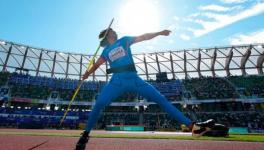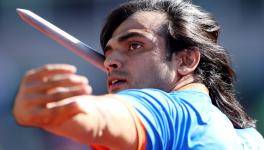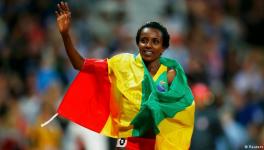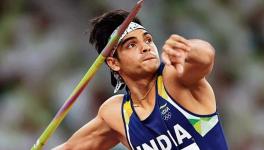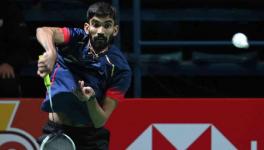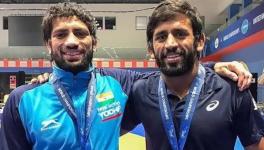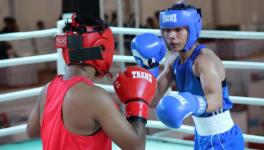The Walk: An Olympian, a Worker and a Home Yet to be Defined
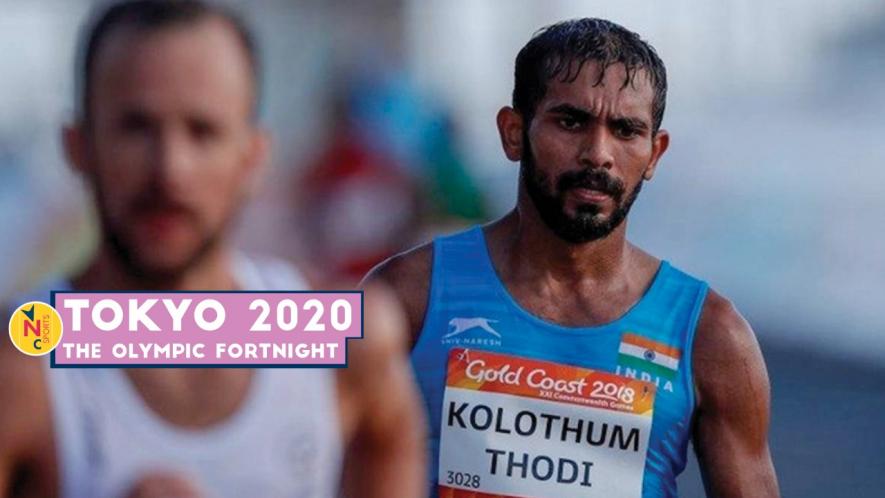
The Tokyo Olympics outing in 2021 could be a swansong for KT Irfan, India’s top race walker. And, he is keen to leave a mark at the Games with a stellar performance.
Humans are more than capable of wandering aimlessly but can never walk thoughtlessly. Wonder why? There is a fascinating yet indefinite science to it. One of those mysteries physiologists and psychologists have tried to decipher, trying to bridge the walk and the talk using the known science of human existence. It is not easy, they say, to walk the talk, but it also happens to be the most natural exertion a free man or woman could use to express liberty. But are we really free?
The philosophers, almost by instinct, knew when to walk, when to talk and act. The freethinking Utopia they created for themselves. They moved about with ease around life’s obstacles, thought and taught with freedom, and expressed with accountability. “All truly great thoughts are conceived while walking,” wrote Friedrich Nietzsche in Twilight of the Idols, while mulling the significance this physical expression of liberty had on his life.
We learn to walk early in life — soon after mastering the life-sustaining, and instinct-driven exertions such as breathing, drinking and eating. The moment you learn to walk, you liberate yourself. You begin exploring your potential and that of the world beyond the peripherals that locked you in. The moment you move forward, you learn how to escape. Freedom is, after all, a right to escape too. Now, as seasoned men and women, we hardly taste the world beyond our lives, don’t we? For us, freedom is a conspiracy that’s sold via tweets.
Read More | Dichotomy of Gold: India and the Moscow Olympics
We hardly walk, unless destiny forces it upon us in the form of a race — governed by its own set of rules, mission, vision, and an end result. We then get caught up in the desire to reach the finish line. Be it KT Irfan, India’s pre-eminent race walker, who chases podiums and metal. Or be it any random man, woman or child from the many millions who chose to walk to their villages and hamlets when lockdown was thrust upon them via democratic institutions, no less. Their toil has no end in sight, and it began at no specific point. They seek metal too, albeit not gold.
Irfan walks… They walk. We all walk our respective races, don’t we? But why?
Irfan smiles, and laughs when searching for an answer, when he is seeking words to articulate. It is a wry, shy stretch of facial muscles to reveal a hearty laugh, which he uses again liberally, before opening up in Malayalam — which has a distinct north Kerala accent, something we from Kochi, central Kerala, find amusing, and warm.
“I can’t even imagine the challenge,” he says. “Can’t even imagine what they are going through,” he adds. “They are walking to save their lives. They are starving and yet moving forward. Sitting here one can only wish one could help them. Only wish….” He then fades into a reverie — the afternoon chat during the early days of lockdown giving us the luxury to procrastinate.
At the time, the Tokyo Olympic Games were still set for 2020. Irfan, who had already qualified for the Games, was not walking the way he was supposed to, three months before the event which he hoped would provide justice to what he believes is his true potential. Given the lack of intensity in training, he was unsure where he would be when the 20km race starts in Tokyo, and how and when he would cross the finish line and make a mark.
“Something I always wanted to do in life, to make a mark,” he says. “So, the Games for me mean that. To prove something to myself and to the folks — even some in the athletics fraternity — who think walking is less of a challenge. You walk and you will know.”
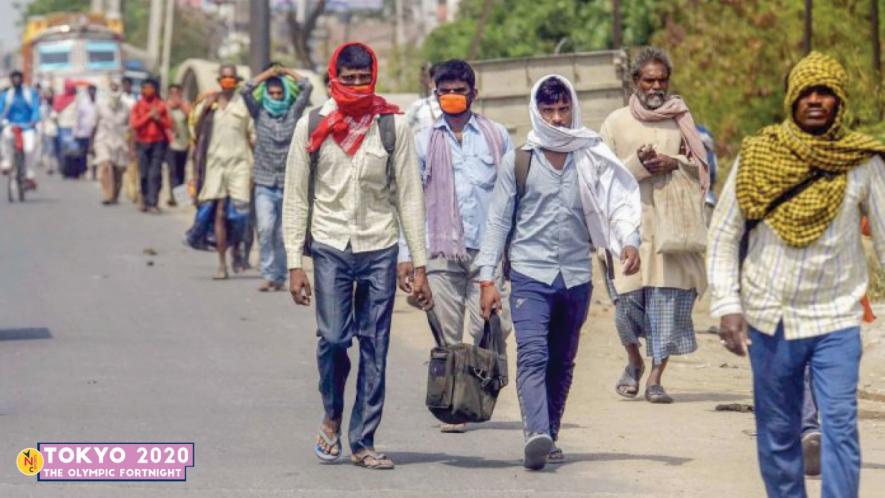
Irfan walks, and he knows. But Irfan walks, and he admits he doesn’t know either.
“I always thought I was under tremendous pressure while walking for a medal. Now, I have a better understanding of what real stakes in life are,” he adds. “Like I said earlier, I cannot imagine what they are all going through. I could sense the suffering. I know what it means to be longing to get home too. After all, we Malayalis are all migrant labourers right.”
Irfan finished 10th in the 20km walk at the 2012 London Games. He missed out in Rio due to an injury. Tokyo could be his swansong Games.
Click | For more from ‘Tokyo 2020, The Olympic Fortnight’ series
“I know where it ends, you know,” he adds, as one tried to figure out whether he was talking about his career or a race. “When I walk I distinctly picture the finish line, visualise and calculate how and when I would reach there. Race walking is a precise science. There is a rhythm we need to adhere to. Or we will lose out on pace, on our advantage. We lose even our breath. If we lose form, we get penalised too. It is a precise, rule-bound form of walk, so very different from the way we walk normally.”
There is no freedom in the walk Irfan does. So there is no freedom of thought either. He is bound by a constant mental effort to adhere to the straightjacket provided by the gyratic rhythm race walkers have to adhere to. Those shackles, perhaps, connect Irfan’s walk to the trudge of the worker.
There is no freedom in the walks that left many of us with a bitter feeling of guilt, in the induced coronavirus lockdown that left many jobless. Their decision to walk hundreds of kilometres to the places they belong rendered them homeless as well. Then again, the choice to walk was not theirs, was it?
Read More | Mohun Bagan’s Myopia Encapsulates New India
“These are unprecedented circumstances,” says Irfan. “I am stuck within the confines of the Sports Authority of India centre in Bengaluru. It’s surreal being here. We are cocooned and relatively safe. But outside, we know what is raging. My family is in my village in Kerala. And cases have spiked in my home district, Malappuram, primarily because of the return of many workers from the Gulf. I have been trying to contribute by supporting the efforts of the sports club (Prabath club) in my village. That’s the way I stay connected with the reality raging outside.”
A substantial population from Kerala make their living as migrant workers across the world. Irfan’s many relatives and friends work in the Gulf. The Army man knows what it means to be a worker far from home. He, through narratives that are very much part of his life and extended family, knows what longing for home feels like.
NRIs were flown back by the government and many possessed the resources to pay for their rides. In India, those struck by the hard hand of systemic apathy, walked first, then crammed themselves onto the trains and buses. Many died on railway tracks and platforms, and on highways.
With these reminders, the chat took on a sombre tone, broken by us, almost simultaneously, with talk of returning home — me talking as a migrant journalist in New Delhi, he, a migrant athlete in Bengaluru.
Read More | Olympics on Sail: Medal, Mettle and Mayhem in Munich
“A training centre, perhaps. I could teach and train kids to walk,” says Irfan.
That would involve walking the talk too, one mulled, before asking Irfan about the government or private support that would be needed for such an enterprise. We both concurred that in the times we are living, it is better that he continues walking, till destiny presents the case itself.
How different then is Irfan’s walk from that of the others? There seems to be no finish line soon. For Irfan, the churn to make a mark could end after Tokyo 2021 with or without a significant showing. If it does not, he can always walk back to the Army — “MRC Unit 5 Madras,” he elaborates. “And then, home,” he concludes.
How many of the rest could imagine the home stretch at this point. No one. But we all walk, carrying the burden of the unknown, and the weight of the known. For indeed, one can never walk thoughtless. Ever. Unless we can detach ourselves that is, an impossible, if not improbable act in existence at the moment. Unless you are a child. Or Frédéric Gros.
“When you walk, the world has neither present nor future: nothing but the cycle of mornings and evenings. Always the same thing to do all day: walk,” Gros wrote in A Philosophy of Walking. “But the walker who marvels while walking has no past, no plans, no experience. He has within him the eternal child. While walking I am but a simple gaze.”
Get the latest reports & analysis with people's perspective on Protests, movements & deep analytical videos, discussions of the current affairs in your Telegram app. Subscribe to NewsClick's Telegram channel & get Real-Time updates on stories, as they get published on our website.









